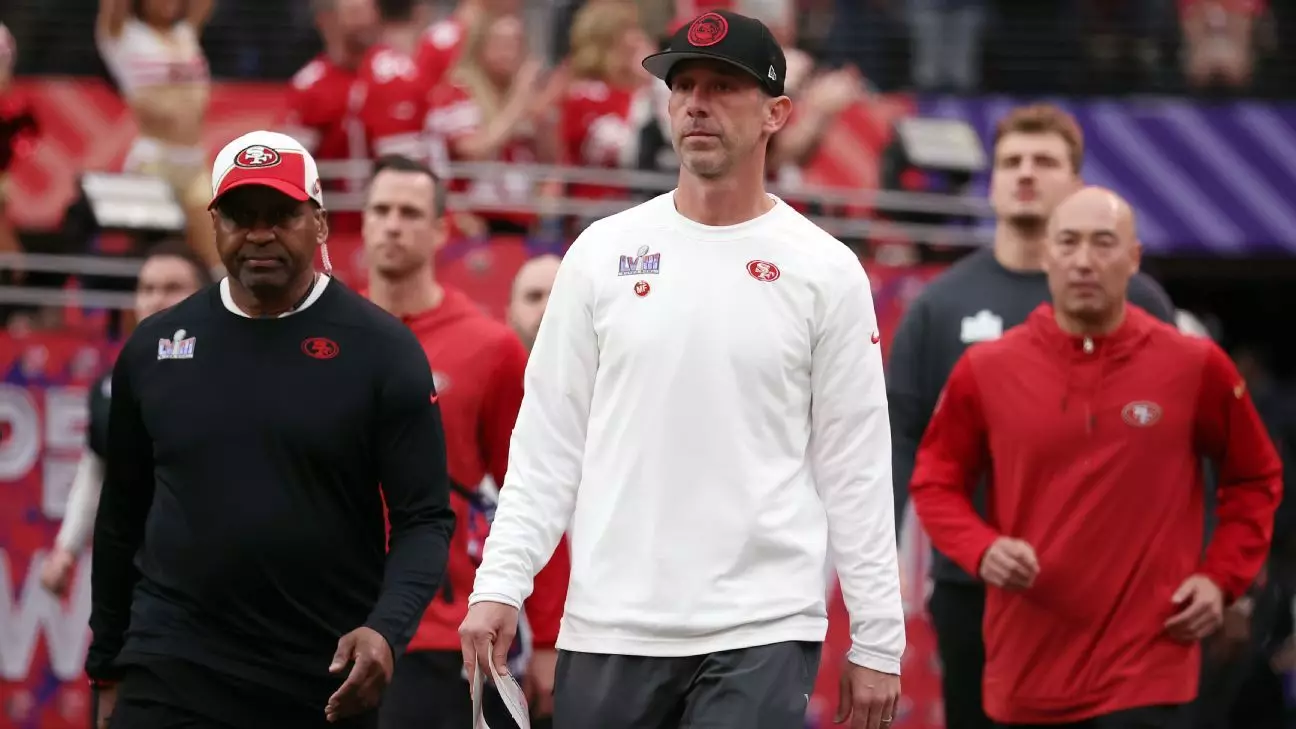Game management is a crucial aspect of coaching in the NFL. Coaches must make strategic decisions that can greatly impact the outcome of a game, especially in high-stakes situations like the Super Bowl. However, the recent Super Bowl LVIII loss of the San Francisco 49ers highlighted some questionable decisions made by coach Kyle Shanahan in overtime. Shanahan’s lack of clarity regarding the overtime rules and his decision to take the ball first after winning the coin toss have been the subjects of scrutiny and criticism. In this article, we will dive deeper into these missteps and analyze their implications for the Niners.
It is surprising to learn that Shanahan had not adequately prepared his team for the potential scenarios that could arise in overtime. The new postseason overtime rules, implemented in March 2022, allow both teams to possess the ball during the extra period unless the team with the first possession scores defensively. The fact that the 49ers had not been involved in an overtime game in the playoffs during this time raises concerns about the team’s overall preparedness. Despite Shanahan’s claim that he had reviewed the rules with his staff before the playoffs, failing to communicate that information to his players is a significant oversight.
Several 49ers players admitted that they were not aware of the overtime setup, but they acknowledged that it did not change the fact that they needed to try to score on offense and make a stop to defeat the Chiefs. However, it is essential for coaches to provide clear and concise information to their teams to ensure everyone is on the same page. Quarterbacks coach Brian Griese’s last-minute explanation of the rules to quarterback Brock Purdy demonstrates a lack of proactive communication from the coaching staff. As the leader of the team, Shanahan should have taken responsibility for ensuring that every player understood the overtime rules and their implications.
Shanahan’s decision to take the ball first after winning the coin toss has been heavily scrutinized, and for good reason. The Niners managed only a 27-yard field goal on their opening possession, allowing the Chiefs an opportunity to score and win the game. Shanahan justified his decision by referencing discussions with the team’s analytics staff, suggesting that taking the ball first would give the Niners an advantage in a situation where both teams matched scores. However, this decision backfired, as the Chiefs marched down the field to secure a touchdown and secure victory.
Shanahan defended his decision, stating that he wanted to remain flexible and adapt to the game’s unfolding circumstances. While it is essential to be adaptable, it is equally vital to have a well-thought-out plan based on sound analysis. Shanahan’s assertion that he might have chosen differently if the game had been more high-scoring raises questions about his judgment. A coach’s decisions should not be influenced solely by the current score but should be based on a comprehensive understanding of the game situation, opponent tendencies, and the team’s strengths and weaknesses.
General manager John Lynch pointed out that the 49ers defense had just endured a taxing final drive by the Chiefs before overtime. The defense expended considerable effort chasing quarterback Patrick Mahomes and required time to recover and regroup. While this context offers some justification for Shanahan’s decision, it does not absolve him of the responsibility to make the best decision for the team. As a coach, it is crucial to consider all factors, but ultimately, the decision should prioritize maximizing the team’s chances of success.
Following their devastating loss in Super Bowl LVIII, the 49ers now face the challenge of regrouping and moving forward. The team must learn from their mistakes to prevent history from repeating itself. Coach Shanahan is responsible for instilling a culture of accountability and continuous improvement among the players and coaching staff. The 49ers must use this defeat as motivation and as a learning experience to fuel their drive for success in the upcoming season.
Game management is a critical aspect of coaching in the NFL, and mistakes in crucial moments can have long-lasting repercussions. Coach Shanahan’s lack of clarity regarding overtime rules and his decision to take the ball first in Super Bowl LVIII have sparked controversy and raised questions. To succeed at the highest level, coaches must prioritize effective communication, adaptability, and the consideration of all relevant factors. The 49ers’ loss should serve as a lesson to Shanahan and the entire team, pushing them to strive for improvement and ultimately reach the pinnacle of the sport: winning a Super Bowl.


Leave a Reply